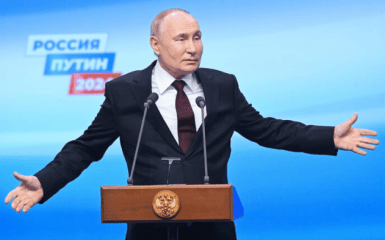The huge losses of the Russian army in manpower in the war against Ukraine have a serious impact on the political climate in the aggressor country and may lead to a change in the leadership of Russia.
Significant losses of the Russian army may lead to a change in the leadership of the Russian Federation
This was stated by the former Minister of Defense of Canada, Peter McKay, at a conference in Ottawa.
I think that the Russians are closely watching how their sons and daughters disappear or return home piecemeal. Citizens of Russia, military personnel and conscripts pay a huge price, they are killed en masse. And this will definitely have an impact on the psyche of any nation, although the history of Russia demonstrates the incredible capacity of Russians to suffer, - said Mackay.
According to him, this may eventually lead to a change in the state regime in Russia.
The leadership in the Kremlin understands perfectly well that if they continue, when they lose, then what we all ultimately need will happen - an internal change of leadership.

Peter McKay
former Minister of Defense of Canada
He also added that "the killing of the entire opposition to Putin probably shows how shaky the situation is."
How Putin is approaching a repeat of Stalin's fate
Journalists of The Times note that the re-election of Kremlin dictator Vladimir Putin for a new six-year term as a result of the so-called "presidential elections" brings him closer to the status of the oldest Russian ruler.
Journalists of the publication note that Putin currently plans to remain in power in Russia at least until October 2028.
Then he will be 76 years old, and in that case he will surpass Soviet General Secretary Leonid Brezhnev, who is currently considered the oldest Kremlin politician.
He will also overtake Joseph Stalin as Russia's longest-serving leader if he is re-elected in 2030.
According to changes to the Russian constitution, which were made in an urgent order in 2020, Putin can rule for two more terms, until 2036, when he will be 84 years old.
The publication notes that the average life expectancy of an average Russian is 64 years.
Journalists note that although Putin receives high-quality medical care, hardly drinks alcohol and does sports, his opponents will continue to hope for his death.
If Putin dies in office, the post of president will temporarily pass to the prime minister. This position is currently held by Mykhailo Mishustin, a former tax inspector.



